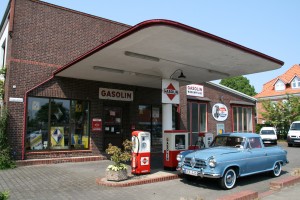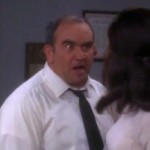
A Loyal Reader Writes:
“I have a question regarding how to create a sense of urgency and/or a deadline for businesses who are not doing a specific limited time offer commercial.
“To be more specific: A gasoline company. They want people to use their facility. They’re cheaper but will not allow us to advertise that fact; we’ve been round and round about it. Small town, they don’t want to start a price war.
“They’re open 24 hours. In addition to the half-dozen credit cards they accept, they also offer a gas card as part of a national network. With the gas card, you can purchase gas 24 hours a day at locations throughout the U.S. These card systems are popular in rural areas.
“This is an especially difficult client to write commercials for; just when I think I know what he’s after and we agree upon it, he changes his whole approach.”
A client who keeps changing his mind about his advertising strategy is:
1. Not unusual.
2. A client who needs educating by the account exec.
You’ve just inherited a gas station, and you need to start making it more productive immediately. It’s all your responsibility, and there is no one available to advise you.
Quick! What’s the first thing you should do?
Review your supplier contracts?
No.
Look at your payroll expenses?
No.
Check your street signage?
Fact is, there is no reason to expect you to know how to run a gas station. You’ve had no training or education for it.
And very few of your clients — be they gas station owners or bank presidents — should be expected to know anything about advertising.
So you’ve got to teach them.
Among other things, you must teach them the importance of:
• A single “core message”
• A message that shows the targeted consumer how this particular product will add to that person’s life
• Frequency of message delivery: The listener has to hear the message enough to notice it, to understand it, to be convinced by it, to remember it, and to act upon it.
• Talking not about the advertiser but rather to the consumer about the consumer’s life
And for a local retail business:
• The importance of giving the listener a genuine reason to act on the sales message NOW
You can’t create a sense of urgency unless there is a genuine deadline, which they can create by making a special offer: Free six-pack of Coke with six fill-ups if you use your card (which they can co-op with Coca Cola).
Or you can set up a three-way deal with a pizza parlor: Coupon good for free pizza with six fill-ups…if they use the gas card. (The pizza parlor gets the free mentions in the commercials plus the increased in-store traffic when people redeem the coupons.)
If they genuinely are the cheapest in town but refuse to advertise that, they need something to set themselves apart:
Open longer hours….
More pumps (which means you never have to wait)….
Frequent buyers’ club….
Cheap hotdogs in their mini-mart….In fact, that could be their big Unique Selling Proposition: Free hot dog with every fill-up. Or 25-cent hot dog with every fill-up.
But if their only true pitch is, “We’re a gas station, just like 100,000 other gas stations,” then I don’t know why they’re advertising at all.
They need to create something of real value to customers to differentiate themselves from their competitors.
Without such a differentiation, they’ll continue to get whatever drive-by traffic happens to come their way, and no more.






